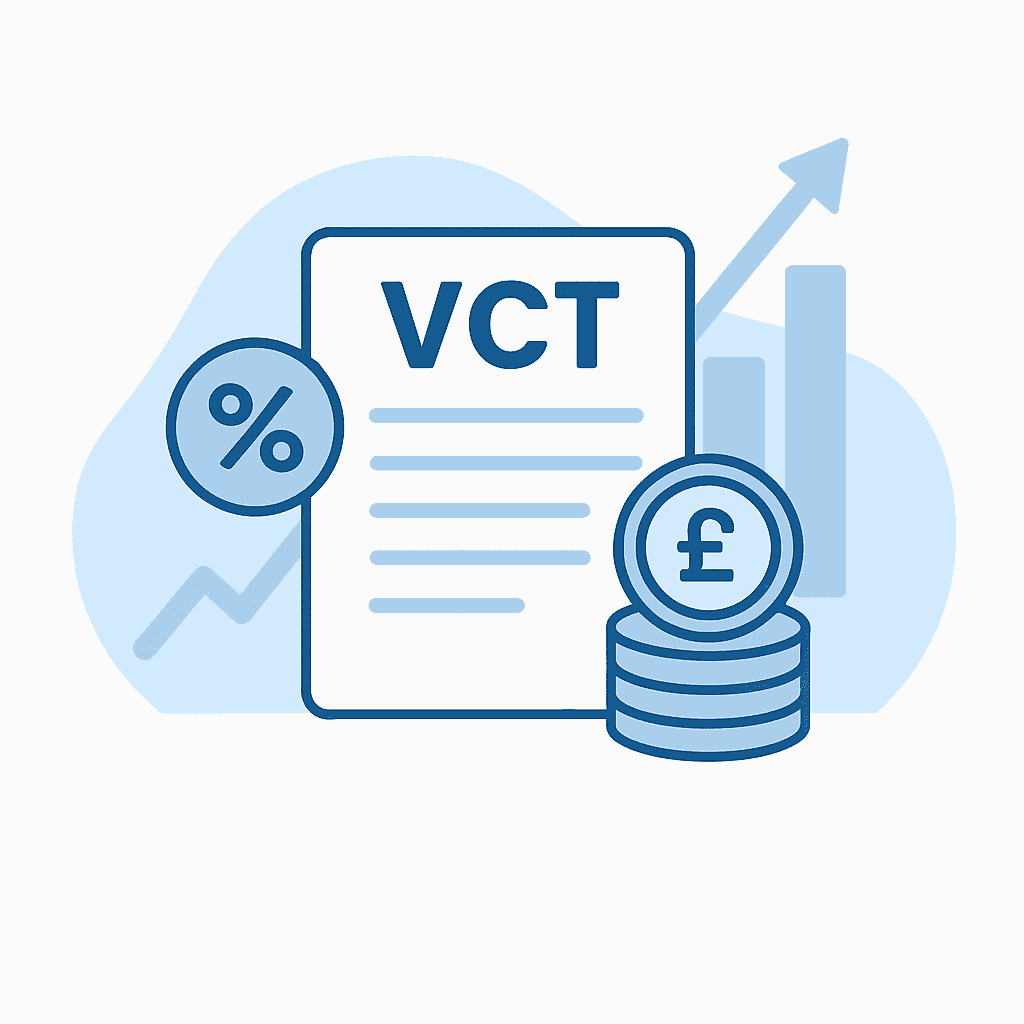Venture Capital Trusts (VCT): Tax Benefits Explained
Discover the powerful tax benefits available to UK investors through Venture Capital Trusts (VCTs). This guide explains how VCTs offer income tax relief, tax-free dividends, and capital gains advantages—plus what risks to consider before investing in these high-growth opportunities.

What Are Venture Capital Trusts (VCTs)?
If you are a UK taxpayer and would like to invest while keeping the tax efficiency option, these may be areas where VCTs can work in your favour. The money you invest via VCTs will eventually be put to work in small, emerging UK companies for growth or development. While the rewards might be enticing, the risks attached to such investments are much greater than mainstream investments.
This guide gives you clarity on how VCTs actually operate, their tax advantages, and things to consider before making the plunge.
Top Benefits of Investing in VCTs
Considerable Tax Relief
The tax incentives available through VCTs are among the strongest offered by HM Revenue and Customs (HMRC):
- 30% Income Tax Relief: Immediate tax relief on investments up to £200,000 each tax year.
- Tax-Free Dividends: Any dividends received on your VCT investment are exempt from taxation.
- Capital Gains Tax Exemption: Proceeds from selling your VCT shares are free from Capital Gains Tax.
For further information, see GOV.UK Venture Capital Schemes: Tax Relief for Investors.
Support UK Growth Companies
The investment directly supports the growth and development of small, promising UK companies, fostering an environment for innovation and employment.
Diversify Your Investment Portfolio
Investment into VCTs would therefore broaden the portfolio, balancing relatively safe options such as ISAs and Approved Pensions with a few risky, reward-bearing possibilities.
Understanding the Risks of VCTs
While there are obvious advantages regarding taxation and investment, certain risks cannot be overlooked:
- Investment Risks: Early-stage companies can fail, leading to loss.
- Liquidity Risk: It might be difficult for you to sell quickly your VCT shares and trap your money inside them for longer than you expected.
- Market Volatility: Investments in smaller businesses fluctuate greatly in value.
Consider your risk tolerance to find out if the investment is appropriate for you and also that your objectives are aligned with yours.
A Working Example of the VCT Tax Relief
Consider an example:
Suppose you invest £10,000 into a VCT:
- Immediately, you are paid back £3,000 as income tax relief, so your effective investment is £7,000.
- Any dividends you subsequently receive are free from tax.
- If the shares rise in value to £15,000, you may sell without paying Capital Gains Tax on the £5,000 profit.
Always remember your investment needs to be held for at least five years for you to retain tax relief.
How to Invest in VCTs?
In essence, investing in VCTs is rather straightforward, with defining key steps:
- Select a Provider: Some more familiar names in the provider space include Octopus Investments, Albion Capital, and Maven Capital Partners.
- Do Some Research and Evaluation Work: Look at track records, charges, and what kind of companies the VCT invests in.
- Fill in the Application Form: Typically a straightforward affair, usually, application can be done online or through a financial adviser.
- Claim Your Tax Relief: You will be able to claim income tax relief through the application of the relevant section in your Self Assessment tax return.
For further guidance, please do refer to official sources: GOV.UK Venture Capital Schemes.
Is this an Investment for You?
Think about VCT investing if you:
- Are comfortable with the risks involved in investing.
- Would like to lower your income tax bill.
- Aim to seek diversification and some superior returns.
- Have a long-term investment horizon (at least 5 years).
Advisors are usually consulted to assess how suitable these plans are especially if one has little or no experience with riskier investment options.
Conclusion: Weighing Risk and Reward in the Case of VCTs
Venture Capital Trusts, given the tax advantages they carry, attract investors who are comfortable with opportunities that have a higher risk. Coupled with the appropriate planning and a healthy awareness of the risks, most investors could use one or a few VCTs as part of a diversified investment plan.
Determine your own risk tolerance; diversify to include natural risk offsets, and try and seek out expert advice to fully benefit from this tax-efficient, one-of-a-kind investment tool.